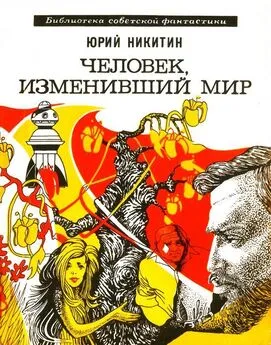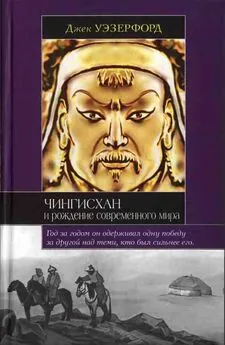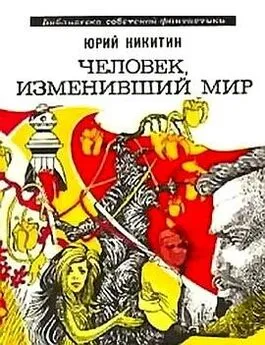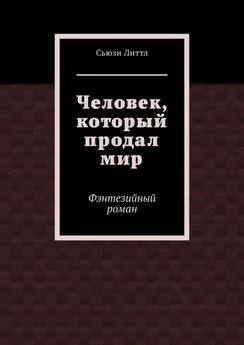Фрэнк Маклинн - Чингисхан. Человек, завоевавший мир
- Название:Чингисхан. Человек, завоевавший мир
- Автор:
- Жанр:
- Издательство:АСТ
- Год:2019
- Город:Москва
- ISBN:978-5-17-095186-4
- Рейтинг:
- Избранное:Добавить в избранное
-
Отзывы:
-
Ваша оценка:
Фрэнк Маклинн - Чингисхан. Человек, завоевавший мир краткое содержание
Чингисхан. Человек, завоевавший мир - читать онлайн бесплатно ознакомительный отрывок
Интервал:
Закладка:
749
Martin, Rise p. 116. Dabsun Nor (Lake Dabuxun) is at approx. 37° N, 95° E.
750
Hambis, Genghis pp. 98–99.
751
Krause, Cingis Han p. 29.
752
Martin, Rise p. 117.
753
Krause, Cingis Han p. 29.
754
Martin, Genghis Khan p. 118.
755
Martin, Genghis Khan p. 118.
756
There is some suggestion in the sources that the Tanguts were regarded as inferior by the Jin and possibly even the Mongols. Rubruck, in his asides about the Tanguts, can find nothing good to say about them except that they were 'swarthy'. (Jackson & Morgan Rubruck p. 159).
757
Martin, Rise p. 118.
758
RT II pp. 289–290; SHR pp. 177–178.
759
Martin, Rise pp. 119–120.
760
Vernadsky, Mongols and Russia pp. 43–44.
761
SHR p. 18.
762
Так в тексте автора. — Прим. пер .
763
SHO pp. 81–82; SHR p. 33.
764
SHO pp. 73–74; SHR pp. 26–27.
765
SHR p. 20–21.
766
SHR p. 15; Ratchnevsky, Genghis Khan p. 153.
767
Lattimore, Mongol Journeys p. 182.
768
Hedley, Tramps p. 245.
769
De Windt, From Pekin p. 117. De Windt reported that one of the key Mongolian phrases to learn was 'tie up your dogs', (ibid, p. 118).
770
Обыкновенным человеком ( фр .).
771
This is certainly one war hero's view. See McLynn, Fitzroy Maclean p. 101. On spur-of-the-moment impulses the words of Conrad's Lord Jim (in the film of that name) are worth bearing in mind: 'I've been a so-called coward and a so-called hero, and there's not the thickness of a sheet of paper between them.'.
772
SHO pp. 118–119; SHR pp. 65–67. The ingratitude was noticed in Dunnell, Chinggis Khan p. 40.
773
SHO pp. 226–227; SHR pp. 168–170.
774
SHO pp. 107–108; SHR pp. 54–56.
775
SHO pp. 178–180; SHR pp. 123–124.
776
Без страха и упрека ( фр .).
777
SHO pp. 90, 105, 186; SHR pp. 39, 53, 130–132.
778
JR II pp. 1041–1042; d'Ohsson, Histoire I pp. 413–414. Barthold, however, amazingly says he had unusual self-control and ability to curb his temper (Turkestan p. 459).
779
Vladimirtsov, Genghis pp. 162–163.
780
Gumilev, Imaginary Kingdom p. 234.
781
SHO pp. 71–72, 74–76, 184, 252, 260; SHR pp. 25–29, 126–128, 192–193, 198–199.
782
SHO pp. 207–208; SHR pp. 148–149.
783
Ratchnevsky, Genghis Khan p. 164.
784
Jackson, Mongols and the West p. 47; Ratchnevsky, Genghis Khan pp. 158–159. 'Genghis was not someone who shared' (L. Hambis, 'Un episode mal connu,' loc. cit. p. 7).
785
Vernadsky, Mongols and Russia p. 6; Grousset, Empire p. 248.
786
Ratchnevsky, Genghis Khan p. 161.
787
JR II p. 990.
788
Тем самым, фактически ( лат .).
789
John Masson Smith, 'The Mongols and World Conquest,' Mongoliea 5 (1994) pp. 206–214.
790
Vladimirtsov, Genghis pp. 168–169.
791
Значимости, величия, авторитета ( лат .).
792
JR II p. 1077; Antoine Mostaert, 'A propos de quelques portraits d'empereurs mongols,' Asia Major (1927) pp. 19–156; Pelliot, 'L'edition collective des oeuvres de Wang Kouo-Wei,' T'oung Pao 26 (1929) pp. 113–182 (at p. 166); Pelliot, 'Notes sur le "Turkestan",' T'oung Pao 27 (1930) pp. 12–56 (at p. 13).
793
RT II p. 295.
794
Riasanovsky, Fundamental Principles p. 88.
795
RT II p. 295; Riasanovsky, Fundamental Principles p. 87.
796
ibid. He also saw no great distinction between the arts of war and peace. He said that if you can manage your own house, you can manage an estate, and if you can keep ten men in military order, you can discipline 10,000.
797
RT II p. 295.
798
RT II p. 296.
799
RT II pp. 294–295; SHO p. 15.
800
Needham, Science and Civilization v part 4 pp. 103–106, 141–150.
801
Riasanovsky, Fundamental Principles p. 88; d'Ohsson, Histoire I p. 412. Genghis himself liked a drink, though in moderation, and liked to have guitars playing and minstrels singing while he drank, as did Batu and many of his other descendants (Dawson, Mongol Mission p. 57; Jackson & Morgan, Rubruck p. 175).
802
Riasanovsky, Fundamental Principles p. 89.
803
ibid. p. 91; Ratchnevsky, Genghis Khan p. 153.
804
Предшественник супермена Ницше ( фр .).
805
JR II pp. 1077–1078.
806
Foltz, Religions of the Silk Road p. 113; Anatoly M. Khazanov, 'Muhammad and Jenghiz Khan Compared: The Religious Factor in World Empire Building,' Comparative Studies in History and Society 35 (1993) pp. 461–479.
807
Ratchnevsky, Genghis Khan p. 197.
808
DeWeese, Islamization pp. 100–101.
809
Gumilev, Imaginary Kingdom pp. 169–218.
810
Nikolai N. Seleznyov, 'Nestorius of Constantinople: Condemnation, Suppression, Veneration,' Journal of Eastern Christian Studies 62 (2010) pp. 165–190.
811
Francoise Michaud, 'Eastern Christianities,' in Angold, Cambridge History of Christianity v pp. 373–403.
812
Pelliot, Recherches pp. 623–644.
813
Henri Bernard, La decouverte des nestoriens; John Stewart, Nestorian Missionary Enterprise; Morris Rossabi, Voyager from Xanadu.
814
Pelliot, Recherches op. cit.
815
Wittfogel & Feng, Liao p. 308; Asimov & Bosworth, History of Civilizations iv part 1 pp. 74–76; Pelliot, Recherches p. 626.
816
JB I p. 259; Boyle, Successors p. 188; Pelliot, Recherches pp. 242–248.
817
Dawson, Mongol Mission pp. 144–145, 177–179; Jackson & Morgan, Rubruck pp. 163–164, 211–214.
818
В русском переводе эти слова принадлежат Джамухе, который характеризует воинство Чингисхана по просьбе Таян-хана: «Из-за ненастья не подкачает, а на стоянку — глядишь — опоздает» («Сокровенное сказание», § 195). — Прим. пер .
819
SHO pp. 173–176; SHR pp. 118–121.
820
JB II p. 549; Pelliot & Hambis, Campagnes pp. 175–177; Vladimirtsov, Le regime social pp. 66–67.
821
However, Rashid states categorically that Temuge was Genghis's favourite brother (RT I p. 137).
822
For the complex sibling rivalries among Genghis's four sons see Pelliot, Notes sur I'histoire pp. 10–27. Jochi was not his eldest child, as his sister Fujin was older (Boyle, Successors p. 97).
823
SHO pp. 136–137, 202; SHR pp. 84, 143.
824
Larry Moses, 'The Quarrelling Sons in the Secret History of the Mongols," Journal of Asian Folklore Studies 100 (1987) pp. 63–68.
825
JR II p. 1096. See also P. Golden, 'Tusi, the Turkic Name of Joci,' Acta Orientalia Academiae Scientiarum Hungaricae 55 (2002) pp. 143–151.
826
RT I p. 227.
827
Boyle, Successors pp. 97–116 (esp. pp. 97–100).
828
For general surveys of his character and personality see Pelliot, Notes sur Marco Polo I pp. 250–254; Hambis, Yuan Che pp. 57–64.
829
Abel-Remusat, Nouveaux melanges pp. 61–63; PeUiot & Hambis, Campagnes p. 298.
830
JB I p. 40; Boyle, Successors pp. 154–155; Ratchnevsky, Genghis Khan p. 164.
831
JB I p. 41; Grousset, Empire pp. 67–71, 228–230, 236–238.
832
JR II pp. 1106–1107, 1110–1111, 1144–1148; RT I p. 44.
833
Boyle, Successors p. 138.
834
RT I p. 77.
835
Могетуген у автора. — Прим. пер .
836
For a complete account of the lineage of the house of Chagatai see Boyle, Successors pp. 135–144. For Yesulun, Togen and Mogetugen, ibid. pp. 135–137.
837
Grousset, Empire p. 256.
838
Оборонительной политики. — Прим. ред .
839
JR II pp. 1141–1142.
840
For Ogodei see, initially, Pelliot, Notes sur Marco Polo I pp. 125, 253, 287; PeUiot & Hambis, Campagnes pp. 266, 375 and, in much greater detail, Chapter Fourteen below.
841
JB II pp. 552–553; Ratchnevsky, 'La condition de la femme mongole,' loc. cit. pp. 517–518.
842
RT I p.
843
SHO pp. 205–207; SHR pp. 145–148.
844
В русском варианте «Сокровенного сказания» татарин — не пойманный разбойник, а бродяга, зашедший в юрту, и напала на него Алтани, жена Борохула, которой помогли Чжетай и Чжельми («Сокровенное сказание», § 214). — Прим. пер .
845
Rachewiltz, Commentary pp. 805–806; Rachewiltz, In the Service pp. 76–78.
846
RT I p. 147; Boyle, Successors p. 98. Ayalon 'Great Yasa' (1971) pp. 152–154) claims that Juvaini overestimated Tolui's importance.
Читать дальшеИнтервал:
Закладка:
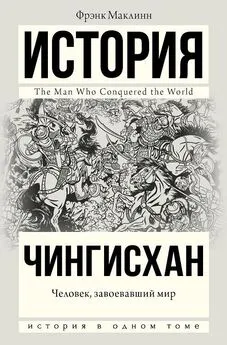

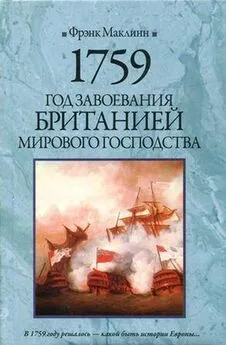
![Ксения Чепикова - Человек, научивший мир читать [История Великой информационной революции]](/books/1059757/kseniya-chepikova-chelovek-nauchivshij-mir-chitat-ist.webp)
